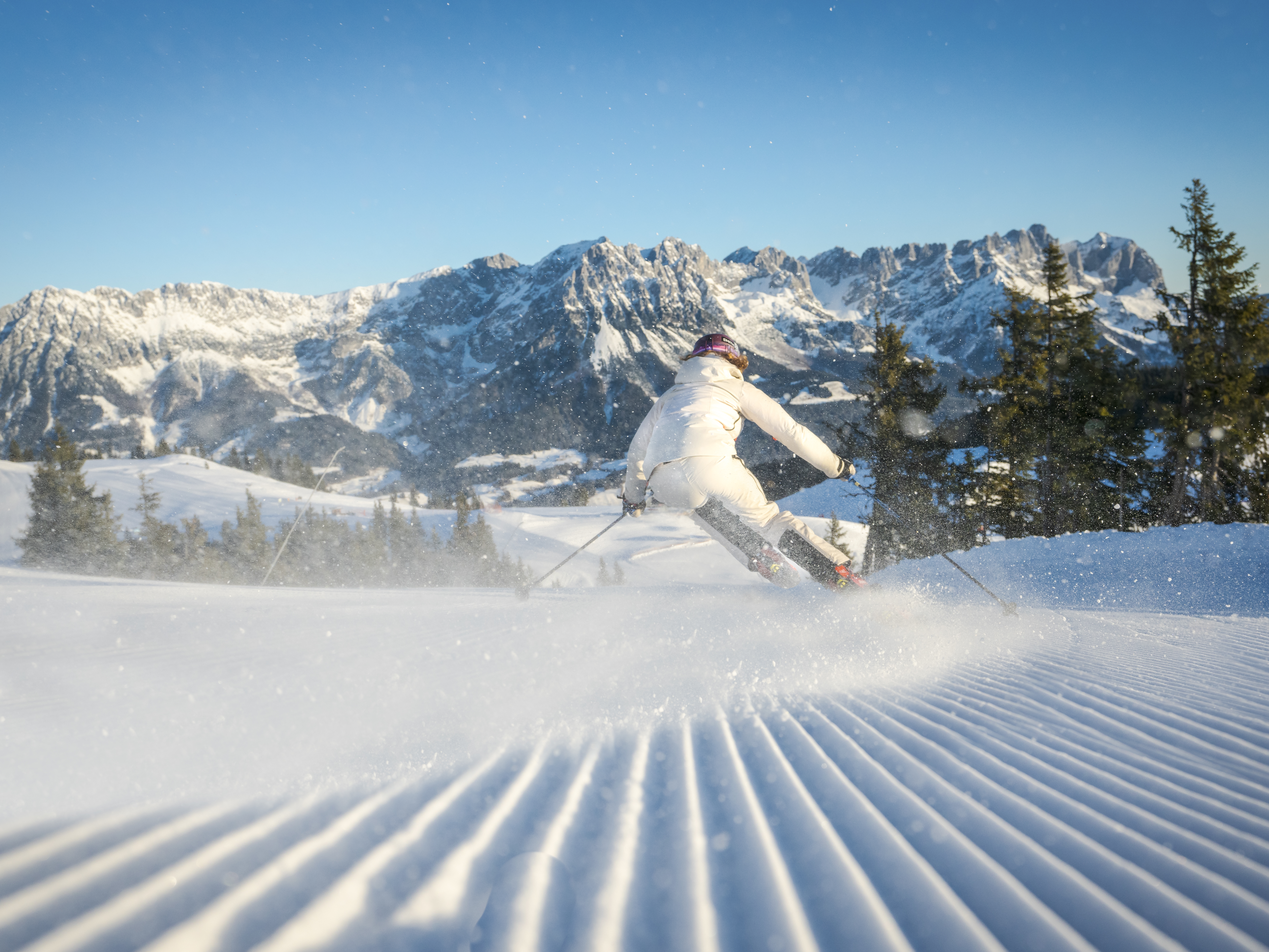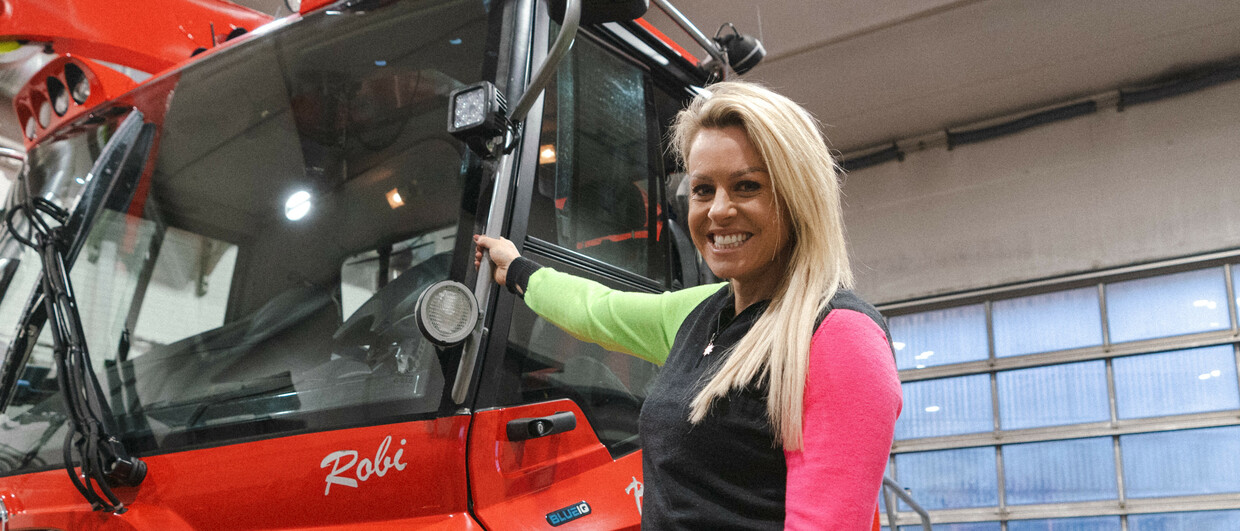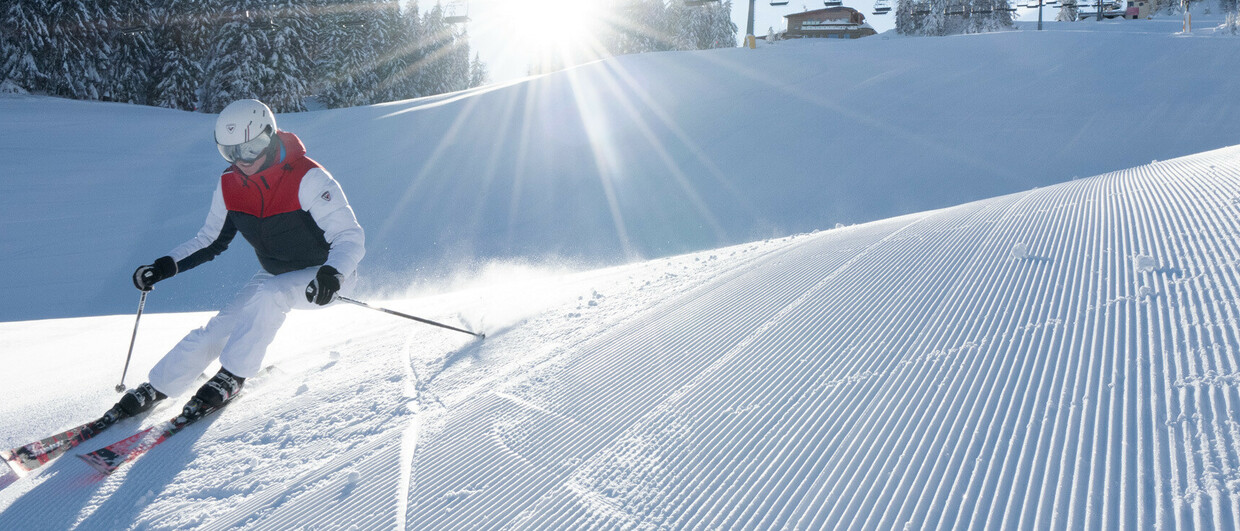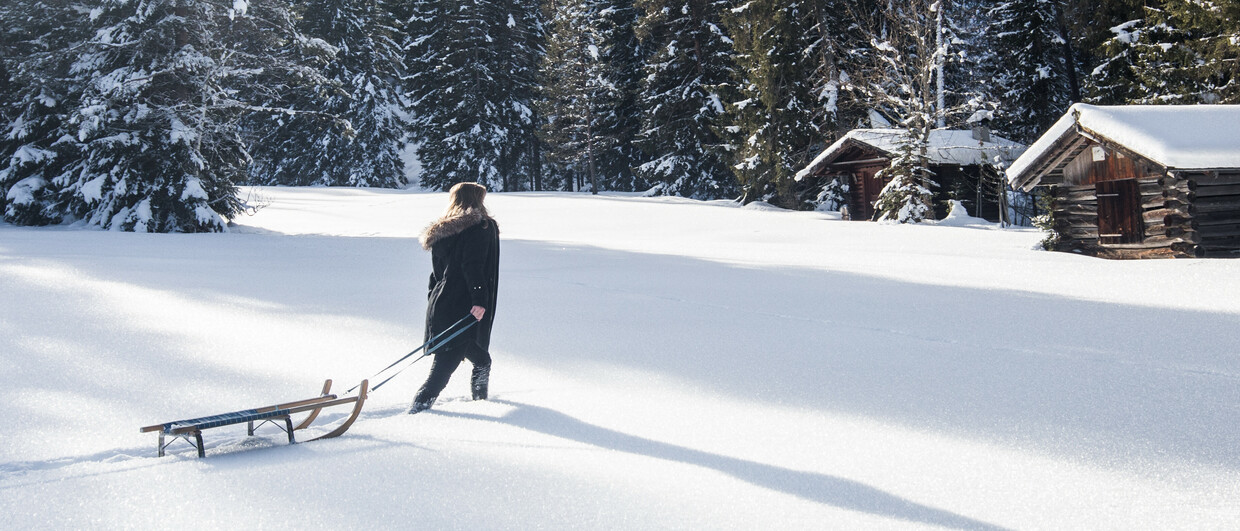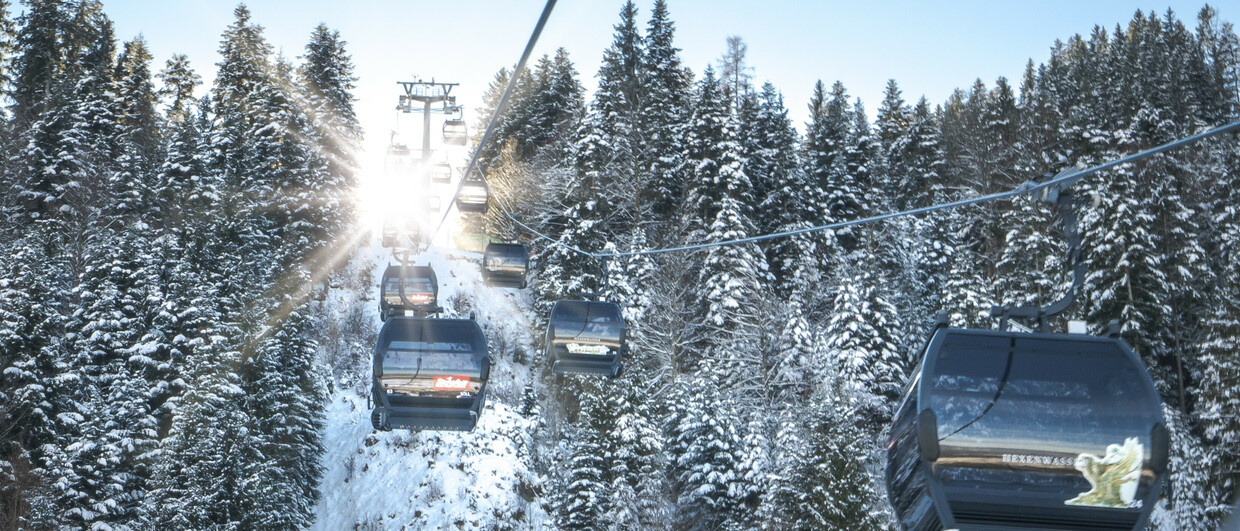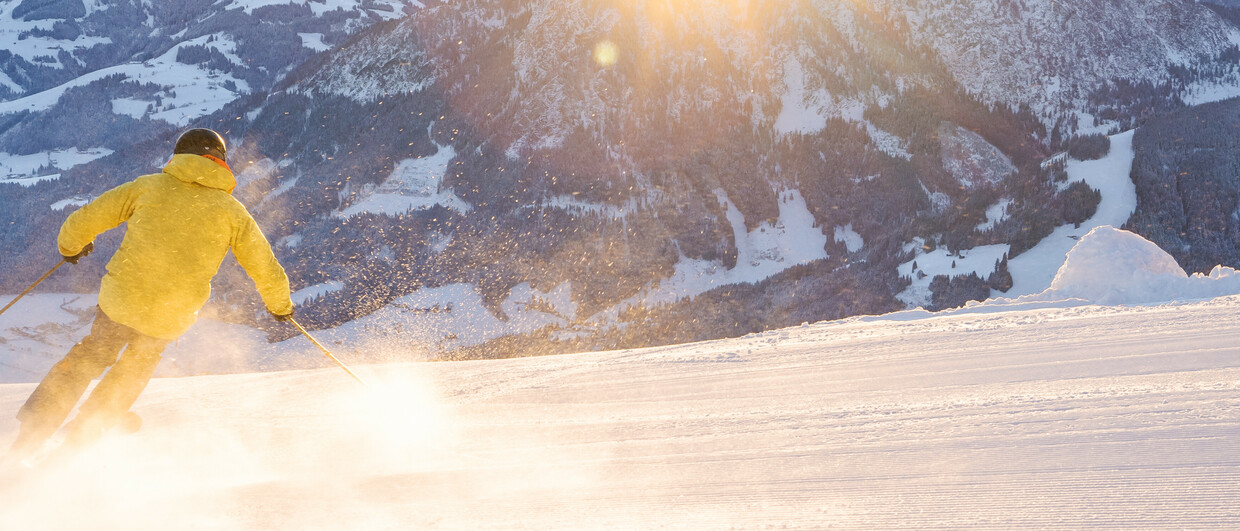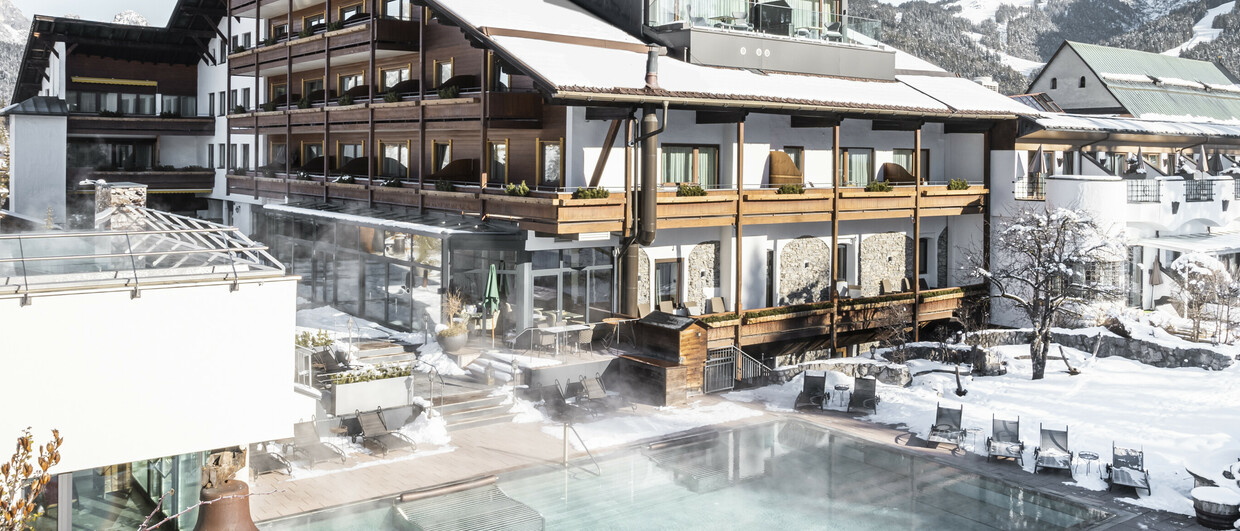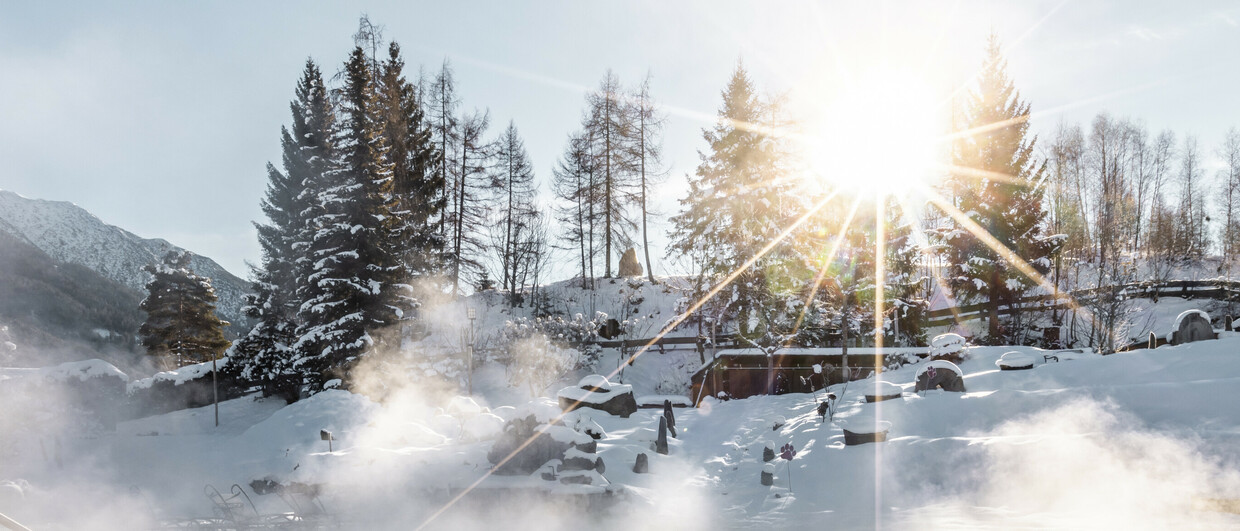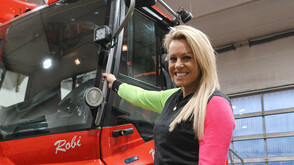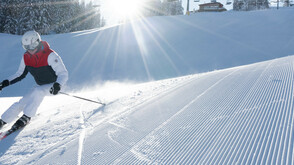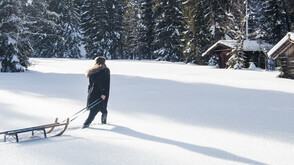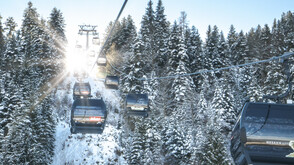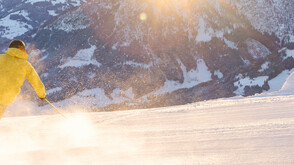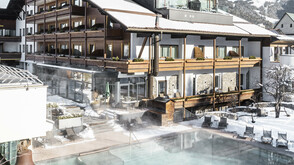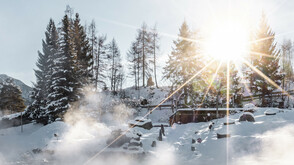Chemmy Alcott Shows Sustainable Initiatives in Austria
Can winter holidays be sustainable? We sent Chemmy Alcott to Austria to find out.
Gliding down the slopes all morning, with new stunning winter panoramas awaiting around every corner, Kaiserschmarren at a cosy hut for lunch, then some more outdoorsy exercise before watching the sunset in a deckchair amidst snow-covered peaks: Ski holidays the Austrian way are legendary. But are they sustainable too?
Studies show that holidaymakers are increasingly concerned about climate change and their own carbon footprint. No less than 80 percent of British winter sports fans said in a recent survey that they factored in sustainability considerations when choosing their travel destinations and planning their winter getaway.
We teamed up with Olympic skier and “Ski Sunday” host Chemmy Alcott to have a closer look at three best-practice sustainability projects in Austria. “I’m passionate about protecting the planet and want my children to continue to live out their love of skiing in winter,” she says. Martina Jamnig, Head of Market of the Austrian National Tourist Office in the U.K. adds: “Sustainability is very important to our guests. Therefore, it is important to us to introduce them to committed companies and regions.”
WATCH THE VIDEOS WITH CHEMMY HERE
SKIWELT: ONE OF THE MOST SUSTAINABLE WINTER RESORTS IN THE WORLD
SkiWelt Wilder Kaiser – Brixental has worked on reducing its environmental impact for over 20 years. It is widely recognized not only as one of the largest but also one of the most sustainable winter resorts in the world and has received many awards including the “World Snow Award” by The Telegraph (2017) and “The Most Environmentally Friendly Ski Resort” on skiresort.at multiple years in a row.
- 100% green electricity: SkiWelt and its hotels, cable cars, snowmaking machines, and restaurants have been powered by 100% electricity from renewable hydropower since 2002. The piste bashers are fueled with GTL (burns more cleanly than regular diesel).
- First solar-powered lift in the world: Its “Sun Lift” opened in 2008 as the world’s first ski lift solely run by solar power. A large photovoltaic system generates around 15,000 kilowatt hours per year - this even produces a small surplus, which is fed into the electricity grid.
- Solar power and waste heat: Photovoltaic modules can be found on an increasing number of buildings and lifts (e. g. Jochlift and Zinsbergbahn, Brandstadl, Ellmau). Heat pumps are more and more used to recover waste heat from the ski slopes, which is then used to heat the lifts and snowmaking machines. The Choralpe mountain restaurant has been powered by waste heat since 2008.
- Sustainable snowmaking: SkiWelt has 17 natural storage ponds filled mainly by snowmelt, precipitation and springs (all drinking water quality!). This water is used for snowmaking, and afterwards goes back into the natural circle. 71 piste bashers with GPS system groom the slopes every night, allowing for the snow to be distributed exactly where it is needed. As a result, SkiWelt has been saving around 25 percent in water resources, electricity, and costs since 2017.
- Read more here: https://www.skiwelt.at/en/sustainable-tourism-in-the-skiwelt.html
SEEFELD: THE FIRST REGION HOLDING THE AUSTRIAN ECOLABEL
Tirol’s high plateau Seefeld was the first region ever to be awarded the Austrian Ecolabel for tourism destinations in May 2023, a recognized certificate that makes sustainable action tangible and measurable and aims to increase awareness for eco-friendly holidays. To date, only one other resort (Wagrain-Kleinarl in SalzburgerLand) has received the label. Seefeld sees its sustainability vision as a joint effort, encouraging all tourism businesses in the region to implement eco-friendly measurements.
- Green power: The region Seefeld uses 100% eco-friendly electricity, including for its infrastructure and snowmaking. While this comes from mainly hydropower, they are also expanding their photovoltaics facilities and encourage all local businesses to switch too.
- Public transport: The region encourages guests to arrive by public transport. Free use of the ski buses is included in the ski pass, and the guest card available at hotels and guest houses doubles as a ticket for regional transport.
- Sustainable food: Seefeld’s restaurants have a strong focus on local produce, including game and fresh fish. Vegetarian and vegan dishes are also constantly added to menus to reduce CO2 emissions.
- Read more here: https://www.seefeld.com/en/really-sustainable.html
KLOSTERBRÄU: A BEST-PRACTICE SUSTAINABLE HOTEL
Hotel Klosterbräu has been run by the same family for six generation. As one of over 1,700 businesses in the Seefeld region working on reducing their carbon footprint, it has become a best-practice model of a sustainable hotel. While their main focus is reducing their carbon footprint by using sustainable energy and food sources, their eco-friendly initiatives don’t stop here!
- Solar systems and a wood chipping plant: 100% of the hotel’s electricity comes from a mix of solar, wind and hydro power, while the heating runs on wood chipping fuel. The hotel also plans to build its very own wood chipping plant, with the wood coming solely from their own forest and the farms on the Tyrolean plateau, and to expand its solar system.
- From the garden to the plate: The hotel grows vegetables, fruits and herbs in its own garden, currently has 200 chicks supplying the breakfast eggs and aims to produce 80% of its dairy milk on its own farm by 2026. There’s also a bee farm, with the honey used not only for breakfast but also for honey soaps and a variety of cosmetic products. 50% of the dishes on the menu are vegetarian or vegan.
- Waste reduction and recycling: Hotel Klosterbräu aims to reduce its emissions per overnight stay by 40% from 20 kg to 12 kg by 2030. To achieve this, they have banned plastic bottles and use pump dispensers for soaps and lotions. Kitchen waste is being used to produce compost or feed their farm animals. All paper products from napkins to brochures are of 100% recycled material.
- E-shuttles, scooters and bikes: Guests arriving by public transport are welcome to book the hotel’s free e-shuttle service to and from the train station. E-scooters and e-bikes are also available throughout the stay free of charge.
- Read more here: https://www.klosterbraeu.com/en/sustainability

